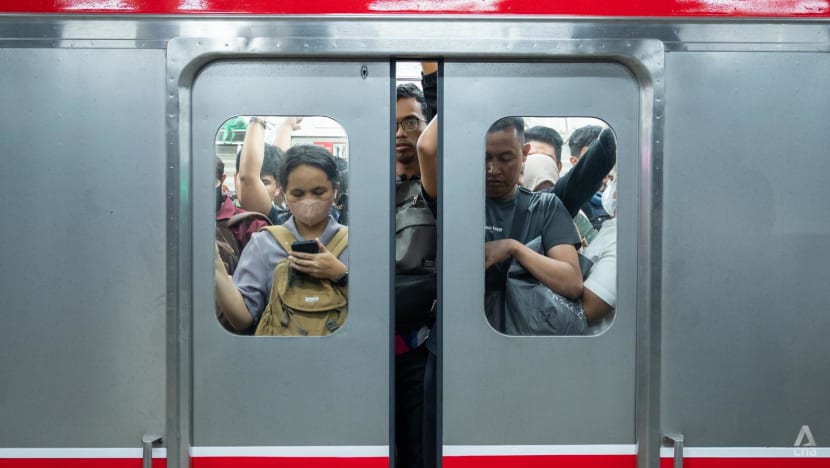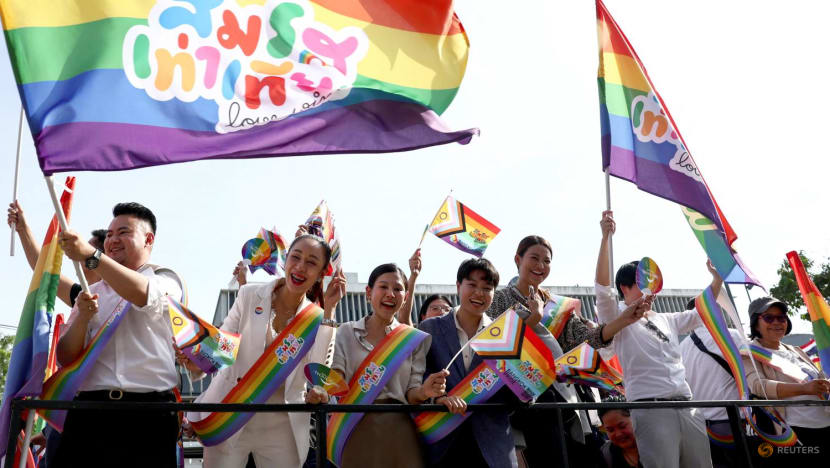Over 4 times more youths in Singapore, Vietnam upbeat about domestic politics than Indonesians, Thais: Survey
Singaporean and Vietnamese youths are also the most optimistic and satisfied about their countries’ political systems, law enforcement and economic future than their peers in four other Southeast Asian countries, an ISEAS-Yusof Ishak Institute survey finds.


This audio is generated by an AI tool.
SINGAPORE: At least four times more youths in Singapore and Vietnam are optimistic about their countries’ political conditions as compared to Indonesia and Thailand, according to a survey by a Singapore research institute published this month.
The study found 72.4 per cent of respondents from Singapore and 68.2 per cent from Vietnam rating their political situation as “very good” or “good”. This is over four times the 15.1 per cent of respondents in Indonesia and 16.4 per cent in Thailand who viewed their country’s political situation positively.
Among Malaysian and Filipino youths, 31.9 per cent and 25.9 per cent of respondents viewed their national politics positively.
Singaporean and Vietnamese youths were the most optimistic and satisfied with their respective countries’ political systems, law enforcement, economic conditions and economic agenda, the survey of six Southeast Asian countries found.
The Youth and Civic Engagement in Southeast Asia survey by ISEAS-Yusof Ishak Institute polled 3,081 undergraduates aged 18 to 24 across Singapore, Malaysia, Indonesia, Thailand, Vietnam and the Philippines.
It is the first time the institute has conducted the survey, which polled the youths online from August to October last year.
ISEAS said it targeted undergraduates for the survey as youth activism on campuses has grown over the years and students in countries such as Indonesia, Thailand and the Philippines have played an instrumental role in regime change.
It hopes to include all 10 Association of Southeast Asian Nations (ASEAN) member countries, address rural and urban differences as well as differences between degree and non-degree holders in its next level of analysis. This is the first survey in a three-year project.
As for their countries’ political system, nearly nine in 10 youths in Singapore and Vietnam indicated they were “somewhat satisfied” or “very satisfied”.
Indonesian and Filipino youths were the “most dissatisfied”, with 27 per cent and 36.8 per cent respectively expressing satisfaction with the way their countries’ political systems are operating.
Over half of the respondents in Malaysia said they were satisfied despite political instability in the country between 2018 and 2022, when there were four changes in prime ministers.
The report’s authors said this could be “a reflection of the youths’ satisfaction with the current Unity Government” led by Anwar Ibrahim.VIETNAMESE, MALAYSIANS, S’POREANS MOST POSITIVE ABOUT ECONOMY
In general, the respondents were hopeful about their national economic conditions.
On average, 76.5 per cent expressed optimism about their country’s economic future over the next five years.
Vietnamese, Malaysian and Singaporean youths were most positive, with nearly nine in 10 having an optimistic outlook. In contrast, just over six in 10 respondents in Indonesia, or 62.6 per cent, expressed optimism while nearly a-third disagreed they were optimistic.
“This could stem from recent declines in the middle-class population, job losses and rising unemployment,” wrote the report’s authors, ISEAS senior fellow and coordinator of its regional social and cultural studies programme Norshahril Saat, visiting fellows Panarat Anamwathana, Iim Halimatusa’diyah and Syaza Shukri, and associate fellow Veronica L. Gregorio.
Official data from Indonesia shows 25.22 million people lived in poverty in 2024, higher than the 25.14 million in 2019 before the COVID-19 pandemic, the report noted.
According to the country’s central statistics agency, 369,500 youths aged 15 to 29 were classified as “hopeless of a job” as of February last year.
“Countries with stable political systems and established economic growth, such as Singapore and Vietnam, tend to encourage greater optimism among youths,” stated the report, which added only Vietnam and Singapore have not experienced a change of government since independence.
Singapore has been governed by the People’s Action Party (PAP) since becoming a self-governing state in 1959 while Vietnam, which gained independence in 1945, is ruled by the Communist Party of Vietnam.
Countries dealing with political or economic volatility, such as Indonesia, saw higher levels of youth scepticism, the report stated.
“Concerns about weakening democracy and the rise of political dynasties may explain young Indonesians’ disillusionment with political elites, especially with former President Joko Widodo,” it said.
UNEMPLOYMENT, WIDENING SOCIO-ECONOMIC GAP OF CONCERN
The survey also found that respondents were more concerned about bread-and-butter and socio-economic issues.
The top three issues of concern were unemployment and recession, corruption and the widening socio-economic gap, and rising income disparity.
More than 80 per cent said they were “very concerned” or “somewhat concerned” with these three issues – higher than the roughly 70 per cent who said they were concerned about racial and ethnic relations, increased military tensions arising from potential flashpoints and freedom of expression.
There were distinctions among the six countries, however. For instance, 87.7 per cent in Malaysia and 84.8 per cent in the Philippines were worried about racial and ethnic relations, higher than the average of 71 per cent.
In Malaysia, race and religion often dominate political discourse, particularly regarding the special positions of bumiputera Malays and Islam, the report noted.
Likewise in the Philippines, tensions involving non-Tagalog-speaking ethno-linguistic groups and the 2017 Marawi siege by an Islamic State-linked group could have contributed to heightened concerns.

S’POREAN YOUTHS LEAST CONCERNED ABOUT CORRUPTION, THAIS MOST SUPPORTIVE OF LGBT RIGHTS
The survey found Singaporean youths to be less concerned than their peers about certain issues like corruption.
Some 63.7 per cent of the Singaporeans polled were worried about corruption, compared to around 80 per cent of Thais and Vietnamese and almost 97 per cent of Indonesians who said they were “very concerned” or “somewhat concerned” about corruption.
The researchers said Singaporean youths' concern for corruption was “particularly striking” in comparison with other countries, as the survey was conducted after the conviction of former Singapore transport minister S Iswaran on Sep 24 last year of four charges of obtaining valuable items as a public servant, and one charge of obstructing the course of justice. He was handed a 12-month jail term on Oct 3.
On whether “lesbian, gay, bisexual and transgender (LGBT) rights should be protected by the state”, Thai youths stood out.
Nearly seven in 10 respondents, or 69.7 per cent, agreed or strongly agreed the rights should remain protected, reflecting Thai policy developments like the legalisation of same-sex marriage in 2024, making it the first country in the region to do so.
In contrast, only 15.2 per cent of youths in Malaysia and 10.8 per cent in Indonesia, which are Muslim-majority countries, endorsed state protection of LGBT rights.
















